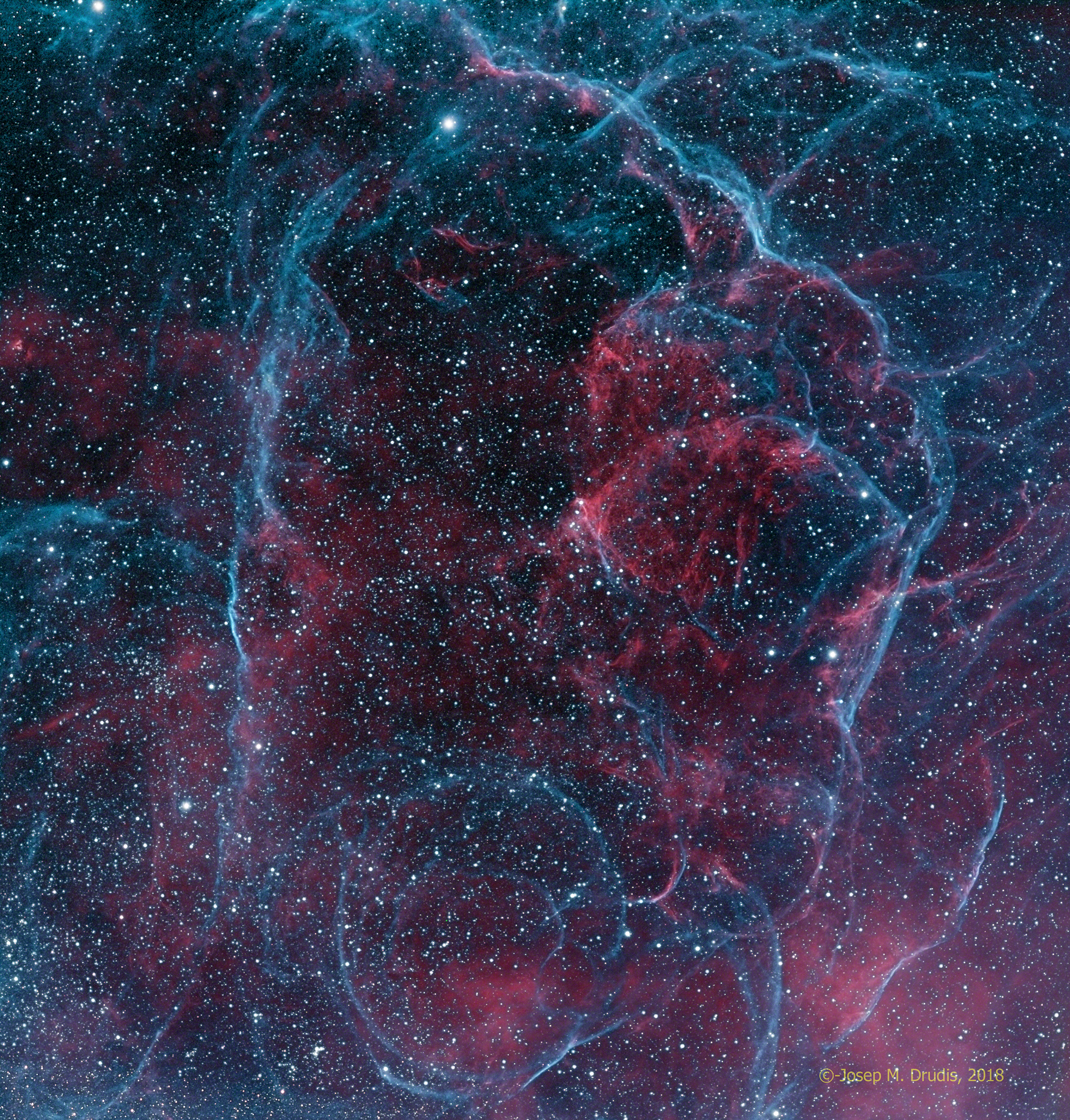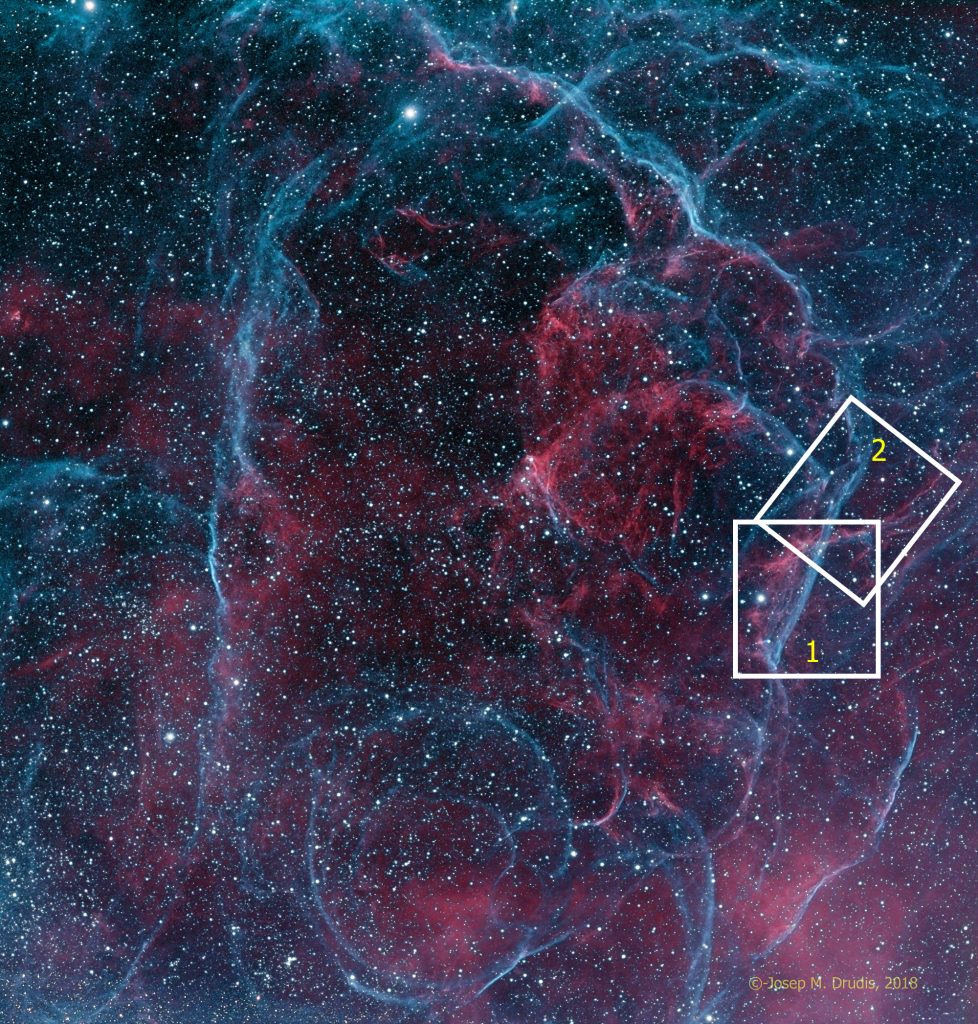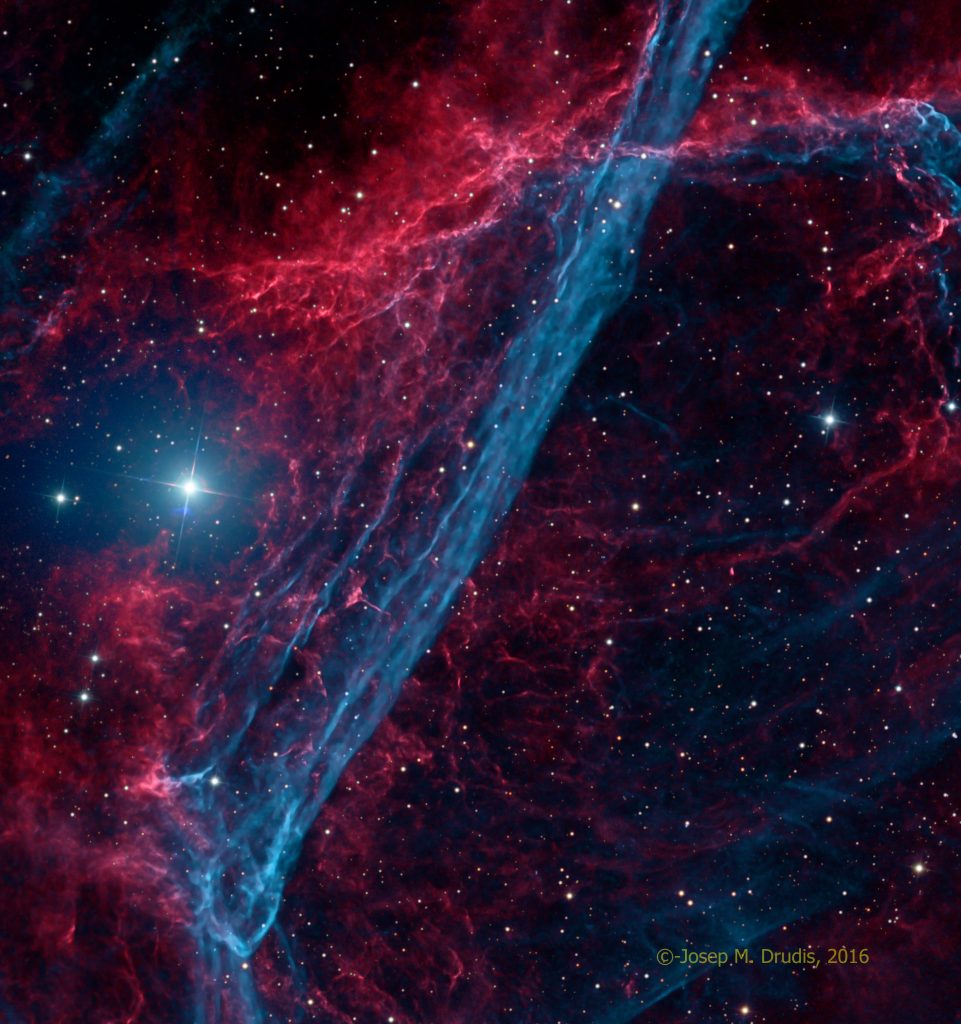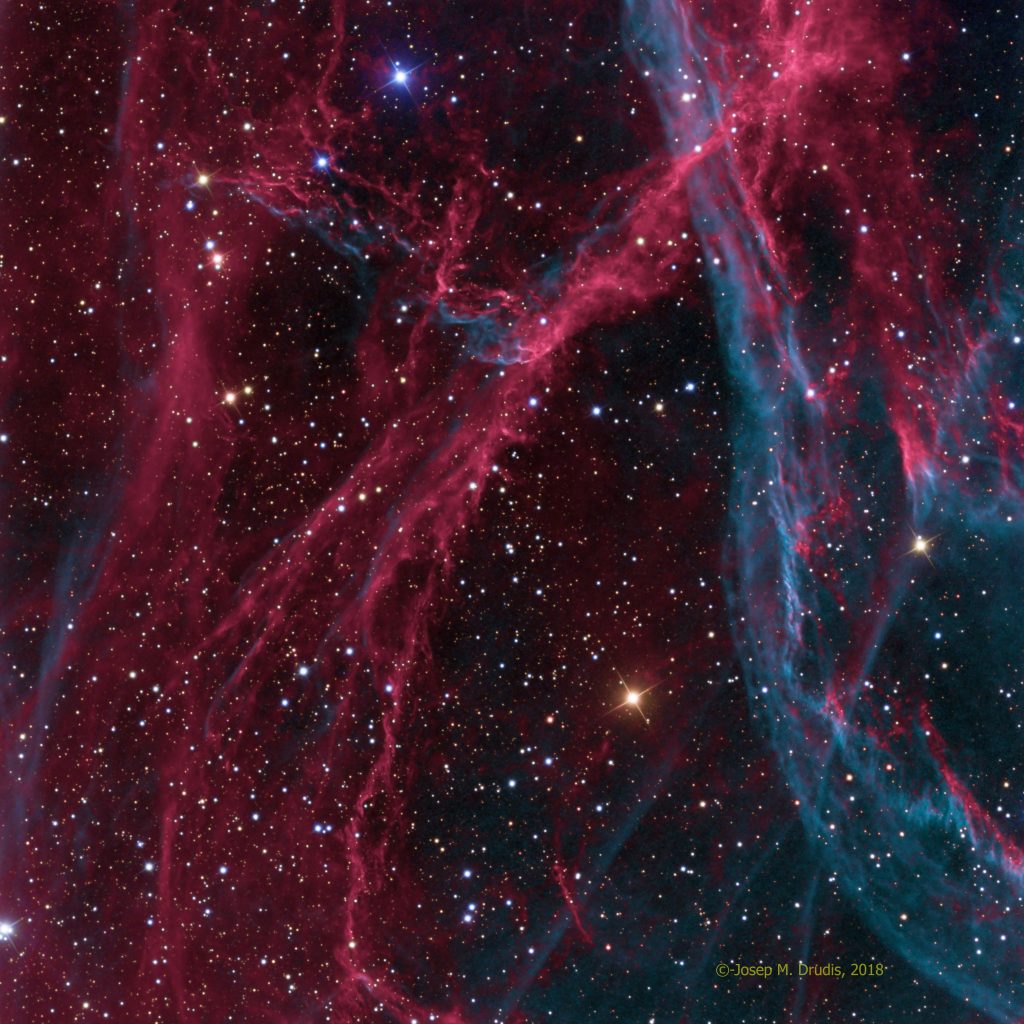This fine (and faint) nebula is what remains after a supernova explosion that took place about 12,000 years ago. The remains of the star that originated it are located approx. at the center of the lower center bubble. This star is now a pulsar, a neutron star emitting a strong beam of radio signals that we only can detect it when it is pointing towards us. As it rotates with a regular rotation speed (quite often varying slowly enough, so that in a limited timeframe, it can be considered constant) the beam is regularly getting bright and disappears until the rotation makes it to point us. This pulsar spins more than 11 times each second, bringing the period between bright peaks to 89 milliseconds… The pulsar has a magnitude (+23) that is far too faint for it to appear in this image. This image captures about 3.7×4 degrees, but it does not capture the nebulosity entirely. Just about 2.5 degrees off the lower left corner, there is a well known and beautiful object: NGC 2736, the Pencil Nebula. Two more fragments (taken with the CDK20″ in bicolor narrowband) of this nebula can be seen by clicking on the images 1 (13.5 hour exposure time) and 2 (14.5 hour exposure time) above.
Additional Information
Object
Name(s): Vela SNR
Type: Supernova remnant
RA: 08h 24m 43s
Dec: -44º 33’ 48”
Constellation: Vela
Size (arcmin): 8×6 degrees
Magnitude: +12
Distance: 800 ly
Image
Date: 2016-05-04 to 2016-05-23
Location: iTelescope.net, SSO near Coonabarabran, NSW Australia
Size (arcmin): 236×228 arcmin (4×3.8 degrees)
Telescope: Takahashi FSQ106 f/5
Camera: SBIG STX16803 (4096x4096pix)
Guiding: Yes
Total exposure:8 hours (24x10min Ha; 12x10min OIII; 10x4min RGB)
Processing: CCDStack, Photoshop CC 2016




Molt bona col.leccio de fotos sobre la supernova Vela.
Són unes imatges diferents i sorprenents.
Resulta increïble per la ment humana la intensitat de la explosió d aquesta supernova.
La disposicio del les línies blaves amb els punts a mi em dona la sensació de la foto de mig cos d una persona